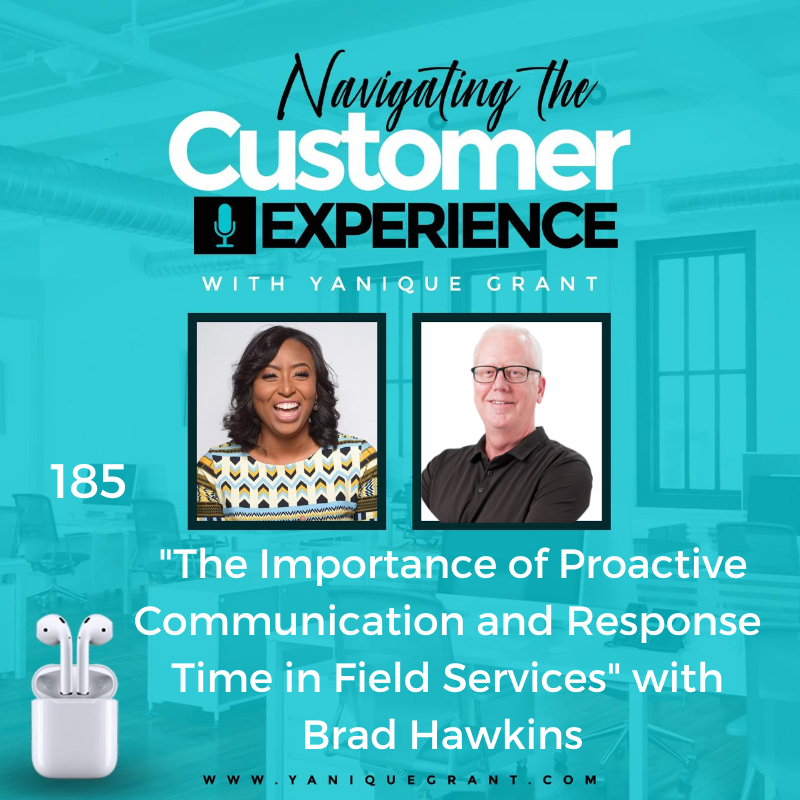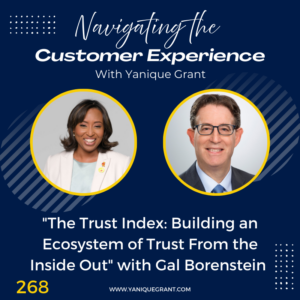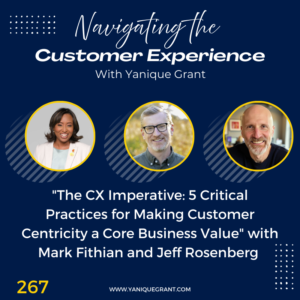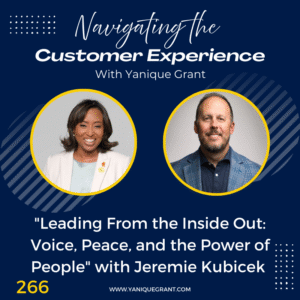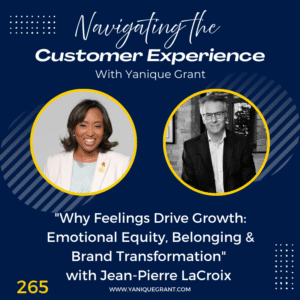Brad Hawkins has been with ServicePower:Field Service Software since 2004, where he currently serves as Senior Vice President of products and solutions, overseeing operations, development and product management. He’s a long-time veteran in the world of field service technology and Brad brings more than 20 years of experience in workforce management software.
Questions
• Could you share a little bit about their journey, how is it that you got to where you are today. And just in your own words, why you’re doing what you’re doing and how you got there.
• Could you explain to our listeners a little bit about what field service is exactly? Maybe just break down some examples of what types of work does that entail?
• What has your experience been with field service? And do you find it differs based on maybe the culture of the country? Or how do you optimize for a great experience with all of those variables that are so uncontrollable?
• Can you share with us what you’ve seen AI’s role been in elevating field service to create better customer experiences?
• Could you also share with us maybe I would say let’s say 1 to 3 different types of solutions that you’ve seen that have been pretty innovative in the whole field service space? Have you seen things being done differently, more efficiently? Are there trends that you’re seeing you think organizations should be tapping into more in order to improve on their service delivery? Or has your company been pioneering that in any way?
• Could you share with our audience what’s the online resource, tool, website or app that you absolutely can’t live without in running your business every day?
• Could you also share with our listeners, maybe one or two books that have had a great impact on you, it could be a book that you read a very long time ago, or even one that you’ve read recently, but it definitely has impacted on your professional competencies as a Chief Solutions Officer?
• Could you also share with our listeners, Brad, what’s one thing that’s going on in your life right now that you’re really excited about? Either something you’re working on to develop yourself or your people.
• Where can listeners find you online?
• Do you have a quote or saying that during times of adversity or challenge, you’ll tend to revert to this quote? It kind of helps to get you back on track if for any reason you got derailed.
Highlights
Brad’s Journey
Me: Now, Brad, before we start off our conversation with our guests, we always like to give them an opportunity to share in their own words, a little bit about their journey, how is it that you got to where you are today. And just in your own words, why you’re doing what you’re doing and how you got there.
Brad shared that it’s an interesting journey for him as somebody who’s been with ServicePower for a long time. And in field services in general, even longer. Because he started out as a self-taught programmer, he had sort of one other career job before coming to the field service world, which was all about data management, he worked down in the Caribbean, where they had very innovative ways, this was back in the 90s, of how they captured data across various mechanisms, the biggest being intelligent character recognition, where you’re scanning things, and he can intelligently read what he can decipher off of a piece of paper.
And in that job coming to an end, he came back from living in the Caribbean. It was in need of finding work and he ended up at a place called Key Prestige, which was then acquired by ServicePower but that was where they built a warranty management platform.
And that was his first foray into the world of field service. It was understanding, there’s this world out there of workforces that are out in the field, how do you optimize them best? How do you use an employee versus an independent contractor and then building out that initial platform, they then became part of the ServicePower world.
Along that journey, he ran development. He’s since run their consulting and professional services organizations. He’s on his second tour running product. But they then combine those platforms, again, with the sort of the ServicePower ecosystem to provide all of these various ways of field service solutions where sort of a big differentiator of ServicePower is do I work with an employee workforce? Or do I work with an independent contractor? And what’s the best way to do that?
So, just over time, he’s had new and interesting challenges at ServicePower, he’s been able to take on other areas. And he’s got to work basically, across the business. He runs product, but he still works very closely from a development standpoint. He’s working with marketing and sales all the time. So, it’s still exciting to him as a long timer but that’s kind of how he got there.
What is Field Service?
Me: So, you’ve done a lot of work in field service. Could you explain to our listeners a little bit about what field service is exactly? Maybe just break down some examples of what types of work does that entail?
Brad shared that he’ll give a couple of examples of some industries. But specifically, when you think about, I’m an end consumer and I have a product or a service that requires someone to come out and do some type of service. And there are organizations then who have these workforces that they leverage.
So, an example would be very simple a homeowner example. I’m in my house, I’m an in consumer, I’ve got a refrigerator, it breaks, who do I call? Is it in warranty? Is it under a service contract, depending on that, that’s going to determine, let’s say it’s Electrolux, I’m going to call them about my fridge, I’m having an issue, it’s not cooling.
They make the decision, oh, we’re going to send a resource to your house to fix that.
So, the entire process of entitling that service event, the transparency to the consumer of everything that’s going on, if you think about those events happening on a larger scale, the optimization of that workforce to gain efficiencies, identifying contractors in the moment to say who’s the right guy to go out and run this job, ensuring people are getting reimbursed for their work properly from the proper organization. And again, just to come back up a little bit high level there, think of that across multiple industries.
So, major appliance, consumer electronics, actually anybody who has a home warranty on any products in their home, the insurance industry who has adjusters for you may have a catastrophe event and have a need to call up your homeowners’ insurance, they’re going to come out and do inspections. It can get larger, apartments, facilities, they have needs for workforces to come in and do inspections, repairs, any of that really.
So, it’s any organization that has a field workforce, whether that workforce is employed, or they’re leveraging independent businesses. The goal of a field service platform should be how do I optimize that? How do I ensure a world class customer experience along the way? How do I defend my brand along the way? But that’s high level.
Me: So, you touched on quite a few things. So, field service is definitely something I believe that all consumers at some point will have to engage in throughout the course of their lifetime. How has it been for you on the end of as you mentioned, optimizing to get the best experience when you have to deal with so many different personalities. And I hear you mentioned that you lived in the Caribbean for a while, would you mind sharing with our listeners, which Caribbean island or country that was?
Brad stated that he was going to ask, he feels like Yanique’s accent got to be Caribbean, he could be wrong. But yes, I lived in Grenada for about a year.
What Has Been Your Experience with Field Service?
Me: So, I am Caribbean, I’m Jamaican, and I am currently in Kingston, Jamaica. Here in Kingston, Jamaica is listening to you speak just now about the fact that you would have a fridge for example, and the fridge breaks down and you call the person that you purchased the fridge from, especially if the fridge is still under warranty. I have found, for example, in Jamaica, contract persons like plumbers, carpenters, painters like those kinds of trades people, they are highly unreliable. They tell you, they’re going to come tomorrow and probably you’ll see them in another two weeks, you have to be constantly following up with them. And I find the service experience to be extremely poor. What has your experience been? And do you find it differs based on maybe the culture of the country? Or how do you optimize for a great experience with all of those variables that are so uncontrollable?
Brad shared that culture and geography does matter, it absolutely matters. Again, as somebody who lived in the Caribbean, he knows the differences there. As a company, ServicePower, they very prominent in North America, but also in Europe, they rolled out in multiple countries in Europe. The geography and sort of the interaction that the customer can have, can change. But the key that they try to push along the way is, you’re going to have a better experience, if you understand how best to interact with the resources involved, or he’ll give you a word that they use in the product world is the personas involved.
So, he has to understand that he has an end consumer who has expectations of a level of service, he has to provide a way for that consumer to have full transparency of everything that’s going on. One of the things he thinks is, in our world today, it’s very clear that consumers, they want to know up to the minute what exactly is going on in any event they’re doing whether it’s where’s my pizza that’s on the way to my house? Where’s my Uber? Same thing.
When he books a technician to come out to his home, he wants to know everything that’s going on, if he’s trying to order a part and it’s delayed, you have to give full transparency to that.
That’s better than not hearing anything, it’s like you said you’re constantly having to follow up. So, one of the key things is to have a system that is very proactive and is going to inform the consumer and keep them in the loop of everything that’s going on all the way up to the point of “I’m on my way, I’m in route.” And ensuring that the resource that you do send, how do I make sure in the moment, that that’s the best possible resource that’s going to provide the best possible outcome for that end consumer.
And again, that’s all about what the ServicePower platform does is it understands whether it’s an employee or a contractor, if it’s a contractor, who is the contractor that is performing to the level that I expect them to, so I can rate and rank them. It’s again, it’s really about those principles.
AI’s Role in Elevating Field Service to Create Better Customer Experience
Me: Brilliant. So, you’ve mentioned optimizing for a better customer experience and the fact that you have real time up to date information for the client so they know every step of the way what’s happening, as you mentioned, if the person is en route, if a part hasn’t been ordered, that kind of stuff. So, artificial intelligence is pretty big now. There’s a ChatGPT, there’s Bing search engine.
There are lots of them and lots of organizations are using the AI to integrate into their current systems to make it smarter, to make it bolder, to make it more informative for consumers.
Can you share with us what you’ve seen AI’s role been in elevating field service to create better customer experiences?
Brad stated absolutely, and he’ll add another term in there along with AI, which is machine learning. It’s very much in the forefront of what everybody’s doing these days. But in the world of field service, again, if you think of that service event, and somebody, whether they make the phone call, they go on a website to schedule service for self-service, it’s in that moment, based on what he knows about that event. What can I predict? That’s what AI and machine learning offer in their world. And that’s the biggest one right now is, if he knows it’s this product, this model, this is the description of what is being told to him that’s wrong and he can even then look at past repair history, how can he just use AI to predict?
Well, the technician, he needs to send out likely needs these three parts. Or he can triage them, he can give them some information to say, try this first, try that. And it’s using AI and machine learning to make those intelligent predictions. What they’ve really learned about it is, people are using historical data to do that today, it’s really about building the feedback loop of as you continue to get that data and ensure that the model you’ve created continues to learn over time.
But again, another good field service term for this is if you can make those predictions intelligently and he can send a tech out with everything he needs ahead of time, that ensures a first-time fix. Because again, imagine when your contractor comes out, he looks at it, he goes, “I don’t have the parts on the truck. I’ll reschedule you for next Tuesday.” That’s a bad experience. So, using AI and machine learning, they can make the predictions of how do I ensure you have all the tools you need so that when you get on site, you are insured of doing a first time quality fix, because that will lead to a happy customer.
Innovative Solutions in the Field Service Space
Me: Could you also share with us maybe I would say let’s say 1 to 3 different types of solutions that you’ve seen that have been pretty innovative in the whole field service space? Maybe especially since we’ve been emerging out of the pandemic, have you seen things being done differently, more efficiently? Are there trends that you’re seeing you think organizations should be tapping into more in order to improve on their service delivery? Or has your company been pioneering that in any way?
Brad shared that he thinks we’ve certainly pioneered it. There’re two things he’ll talk about there. Because there’s actually not that many field service companies that have, they have already thrown around the term optimization. And every company will tell you they do optimization but what we’ve learned and we’ve seen, is there are some specific definitions of things you need to be able to do to truly optimize a workforce. And there really, again, not many companies that actually do it.
So, when he talks about optimization, imagine an employed workforce. So, let’s just take North America as an example. If he were to have 2000 resources across North America, he’s got jobs that where he has to offer up appointments to consumers, he may have SLAs for inspections. So, a job comes in where he’s got to be there in three days, that’s his agreed upon contractual SLA. But he has emergency jobs that may be coming in throughout the day.
True optimization, and one of the things they offer is they can continually evaluate a schedule that’s been built out over time. And that’s one of the ways where they use AI, they use a specific algorithm as part of that, to be constantly evaluating that schedule. And as events are coming in, he can sort of rip that schedule apart, move jobs around, understand what’s the best possible most optimal schedule for all of his resources across however many jobs he has. And that’s running constantly, throughout the day.
When most field service organizations tell you they do optimization, what they’re really doing is, “Well, I have an optimized route. Like I went to Google Maps, and I made sure that my optimized route.” And that’s fine. They can use the term optimization for that. But that doesn’t necessarily take into account things like you can have your route, you can have drive time, is there access hours to a particular building, you may be going in and doing an apartment maintenance or facilities maintenance, and there’s access hours. What’s the cost of overtime? And am I considering that in the schedule? Just the schedule in general, my text, the knowledge and skills that those texts have. Again, how do I ensure that I’m taking all of that account into the schedule I’m creating.
And again, that’s sort of what creates that again, that’s how they refer to optimization. They know others use the term but they’re not doing AI based optimization like they are that can really based on any number of parameters that any of their our clients want to use. The KPIs that drive the business, the important key indicators of the business, all of those with AI. So, that would be one of them.
The other one that again, this is technology and just sort of a general shift in where field service has gone is most software platforms that relate to field service, they sort of choose one method of solving a problem or another and the two main ones are, do I have an employed workforce? Or do I leverage independent businesses, and where most make a mistake and what they’ve really driven in the in the field service world, he would even tell you, he feels like ServicePower is the one who has been on the forefront of this all along, is the idea that you have to understand both of those types of organizations work very differently. But you still have to be able to blend them together because whether he sends his own employee or an independent business, he has to ensure that the experience is exactly the same for the customer.
Again, when he employs someone, he has control of their schedule, he can dictate technology to them, he knows everything about them. When he’s working with an independent business, he sort of have to be able to rate them and score them based on how they performed for him, and he has to know like, “Okay, you’re an independent business, I have to authorize you to work for me, which means I want to ensure your background check. You’ve been through all the proper trainings.” And again, some of those terms he talked about, what are your first time fix rates? What are your costs? He needs the transparency to see into that business because he’s only giving them maybe 10% of the work they actually do, they’re not dedicated to him.
So, one of the things again that they think they brought to the world of field service, and they continue to innovate on is, how can I have a rules engine around that understands?
He’s got two different types of workforces he’s working with, but he’s going to provide one unified world class customer experience where that customer doesn’t know any different. He doesn’t know that it’s an independent business who showed up, he just thinks, again, “My GE product or my LG product, I got it fixed, they did it the first time, that’s all that matters. It was a great experience. So yeah, that’s a couple there.
App, Website or Tool that Brad Absolutely Can’t Live Without in His Business
Me: So, we’ve spoken a lot about optimization and what are some of the pioneering, I would say, talents and attributes that ServicePower has been demonstrating and those are excellent, really, really a good way for us to dovetail into my next question. And so, we’d like to know if you could share with us, Brad, because it’s all about the tools and resources that you’re using to ensure that you’re being most efficient in whatever task you’re completing. Could you share with our audience what’s the online resource, tool, website or app that you absolutely can’t live without in running your business every day?
When asked about an online resource that he can’t live without in running his business, Brad that in running the business, he can name some tools here. But he tell you, they all have a common theme, which is tools that provide analytics. We live in a data driven world and understanding the analytics underneath your business are crucial.
And some examples of that, again, when you think of ServicePower as a software company, it all start by coming at it from the development side, they have to know exactly the velocity of their development staff, they have to know how much time they’re spending on which initiatives are they putting their time into innovation and roadmap versus support and issues, implementation, whatever, they can break all that down. That way they can plan and forecast for the future, what directions they want to go.
Obviously, from an analytics standpoint, sales pipeline matter in that. So, they have a bunch of tools underneath that they obviously use things like HubSpot, as it relates to sales and marketing. And there is a component of Salesforce, they use for that for the development side. There’s a couple of tools they use Jirabeing one to sort of track and it facilitates them gathering that data. They actually have their own, why say their own, it’s a tool that they use called Domo, that it’s basically a data warehouse with an analytics engine over the top of it. So, from their use, again, anything related to analytics.
And that’s the other thing he would tell you beyond just their business is they then have to take all that data that comes out of their platform and present it the same way to their clients, where they can see how is your network performing, how are your employees performing? What’s your customer satisfaction?
He’ll just give you one example of that, there was a sort of a great story at ServicePower was, they came out, it’s probably been about three or four years, they came out with their consumer portal, that’s where consumers are notified of everything of their service event. They can be driven into a portal which gives them information about it.
One of the great key value points of that was their clients who are receiving calls from consumers just like you said, going, where’s my contractor? Their call volume went, they were able to show through their analytics that their call centre volume went down by 40% when they put that tool out there to say, I can now have a system that’s informing the consumer, there’s no need for them to call you because they feel informed. So, again, back to the question, he’ll just tell you anything analytics based. So, again, data driven world and you want to be on top of the things that are driving your business through analytics.
Books that Have Had the Biggest Impact on Brad
When asked about books that have had the greatest impact, Brad stated that he’ll tell his, because in his schooling days long ago, he sort of became very enthusiastic about the idea of culture in business. And there’s a book called The Culture Code: The Secret of Highly Successful Groups, it’s by Daniel Coyle, and it is all about how do I build a culture that brings your workforce together? Has you all enthusiastic about working towards a common goal, it gives you the tools for that. He read it a couple years back, in his opinion, it’s more relevant now because post pandemic, you have people who are disconnected, a lot more people working at home, and it just gives you tools of how do you bring about a workforce that they’re just as much invested in the mission and the goals as you are? So, that’s the book he would recommend, as it’s called The Culture Code by Daniel Coyle.
What Brad is Really Excited About Now!
When asked about something that’s going on now that he’s excited about, Brad shared that for him, he’ll give a personal one, because this is a podcast, and he finds podcasts can be fun that way, and he’ll try to do both. But for him, he’s in a kind of a new transition in life, maybe he shouldn’t say this to the public, he’s 53 years old. Through the pandemic had some struggles in life, and started reinventing things with a new blended family. And so for him, personally, he feels like he’s getting another round of being a dad again, his children are grown. So, personally, that’s very important to him, he’s a huge believer in family, and creating a tight knit family. And so, that’s a big thing for him.
From a work standpoint, he’ll just tell you that ServicePower has been around a long time. But it does feel like they’re always on sort of the edge of innovation as it relates to field service. And this is a year that they actually talked about heavy investment from their ownership. So, it’s an exciting year from the things they’re building, they’re kind of reimagining the entire user experience of the platform, so they find that very exciting. So, even in his 20 plus years that he’s been doing this, he still finds it rewarding, exciting, the initiatives they’re driving. So yeah, again, he’s done this for a long time but hopefully you’re getting that from this podcast is that he’s still very passionate about all of it.
Where Can We Find Brad Online
Website – servicepower.com
LinkedIn – Brad Hawkins
Quote or Saying that During Times of Adversity Brad Uses
When asked if he has a quote or saying that he tends to revert to, Brad shared he does. He’ll quickly look it up. He did this on a previous one he did, it’ll just take him a second because he missed to be prepared for that one. This is one of his favourite quotes, matter of fact, he will tell you that all of the people at ServicePower have heard this multiple times from him. This is the quote, “Anyone who imagines that bliss is normal is going to waste a lot of time running around shouting that they’ve been robbed. Most putts don’t drop, most beef is tough, most children grow up to be just people, most successful marriages require a high degree of mutual toleration, most jobs are often dull than otherwise. Life is like an old time rail journey there’s delays, sidetracks, smoke and dust, interspersed only occasionally by beautiful vistas and thrilling burst of speed. The trick is to be thankful that you are on the ride.” He loves that quote.
Me: And do you know the author of the quote? Is it anonymous?
Brad stated that he’s seen a couple people attributed to it, the person he knew that said it his name is Gordon B. Hinckley.
Please connect with us on Twitter @navigatingcx and also join our Private Facebook Community – Navigating the Customer Experience and listen to our FB Lives weekly with a new guest
Links
· The Culture Code: The Secrets of Highly Successful Groups by Daniel Coyle
The ABC’s of a Fantastic Customer Service
Grab the Freebie on Our Website – TOP 10 Online Business Resources for Small Business Owners
Do you want to pivot your online customer experience and build loyalty – get a copy of “The ABC’s of a Fantastic Customer Experience.”
The ABC’s of a Fantastic Customer Experience provides 26 easy to follow steps and techniques that helps your business to achieve success and build brand loyalty.
This Guide to Limitless, Happy and Loyal Customers will help you to strengthen your service delivery, enhance your knowledge and appreciation of the customer experience and provide tips and practical strategies that you can start implementing immediately!
This book will develop your customer service skills and sharpen your attention to detail when serving others.
Master your customer experience and develop those knock your socks off techniques that will lead to lifetime customers. Your customers will only want to work with your business and it will be your brand differentiator. It will lead to recruiters to seek you out by providing practical examples on how to deliver a winning customer service experience!
Our Next Webinar – May 16, 2023 at 10:00 am


